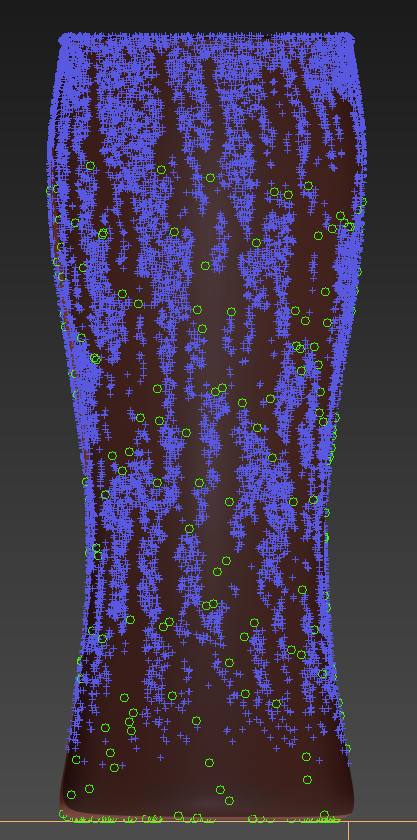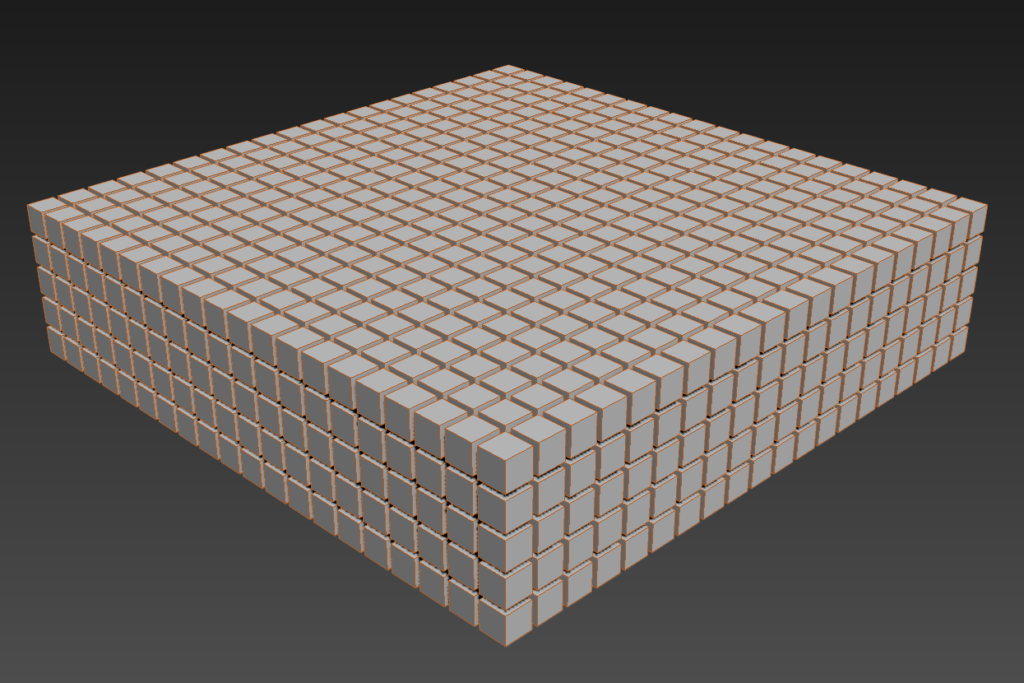For this test I used a simple pFlow simulation of water condensation I made a while ago. Big drops sliding down a glass, picking up little drops along the way. Nothing remarkable, I know, but it seemed interesting since pFlow is single threaded, so I figured I’d leave it running for 50 frames and see what kind of results we’d get.
The graph below shows the pre-windows-update results. I made a bunch of iterations and on average there was only a tiny difference in power plans with this particular task. Still, this is interesting since the balanced plan is supposed to benefit tasks like this by using the full 4.0 turbo and even the coveted 4.1 XFR. However this was not the case.
At first look the variance looks more like a possible error due to Venus being aligned with Mars or something of that sort, but I’ve done dozens of iterations, and on average this small difference was consistent. Xeons again display no difference with all three power plans.
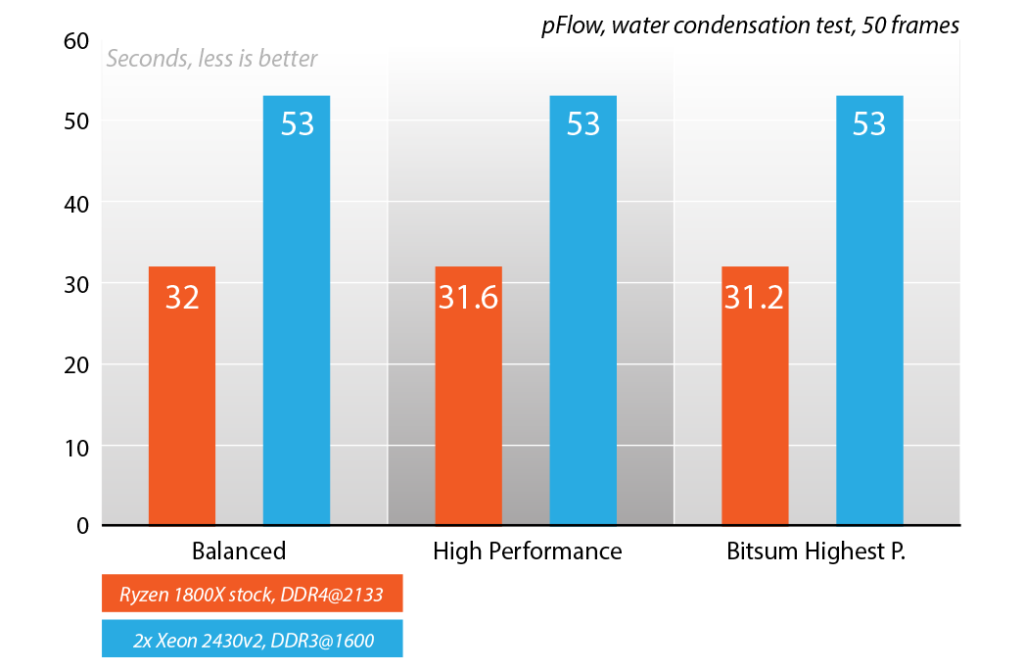
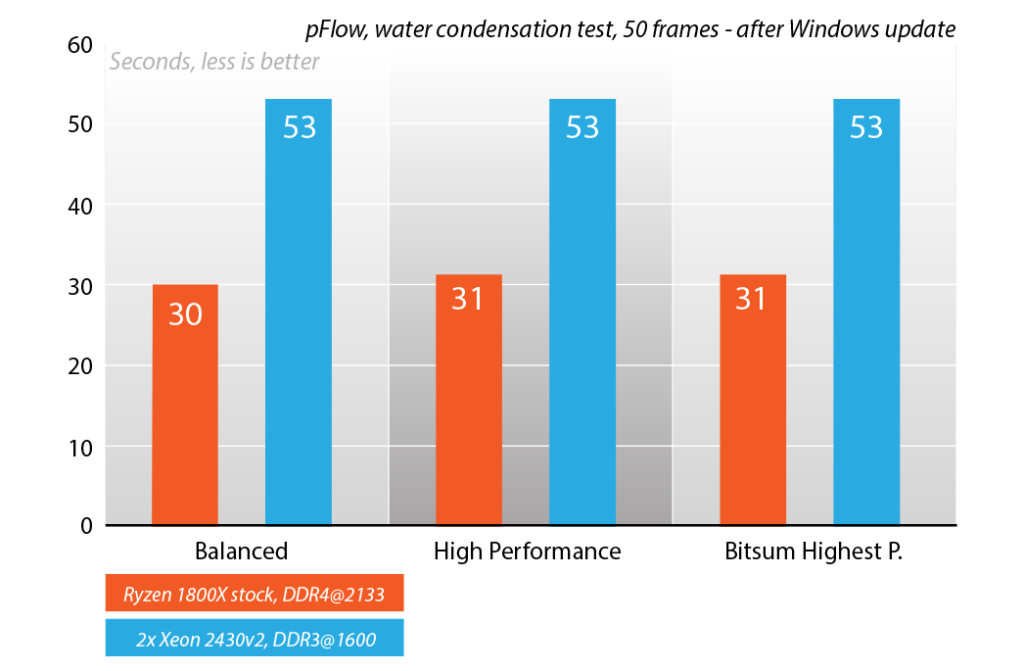
We see a slight increase in speed with the Balanced plan [which is probably the XFR kicking in, although the difference is less than what you would expect] and equal performance in the other two plans. Ultimately, Ryzen rips the Xeons a new one being 43% faster. Although expected given the differences in clock speed of individual cores, it still feels quite nice. By nice I mean awesome, of course. This goes to show that while Xeon based workstations are awesome for rendering due to the high number of cores you can cram into a single machine, a modern desktop CPU will be much faster in certain tasks, since server CPUs generally run at low clocks.
Many Attach – Much Detach testI come across attaching and detaching a lot of objects quite regularly in 3dsmax, so I decided to make a little test script out of that particular scenario as well. I also had no idea about the ‘threadedness’ of said task, so it was interesting to check out. We have 2000 instanced boxes, which we in turn convert to polys, attach all together, and then detach back again to individual elements. While doing the pre-update tests I didn’t really expect anything crazy to happen but lo and behold:
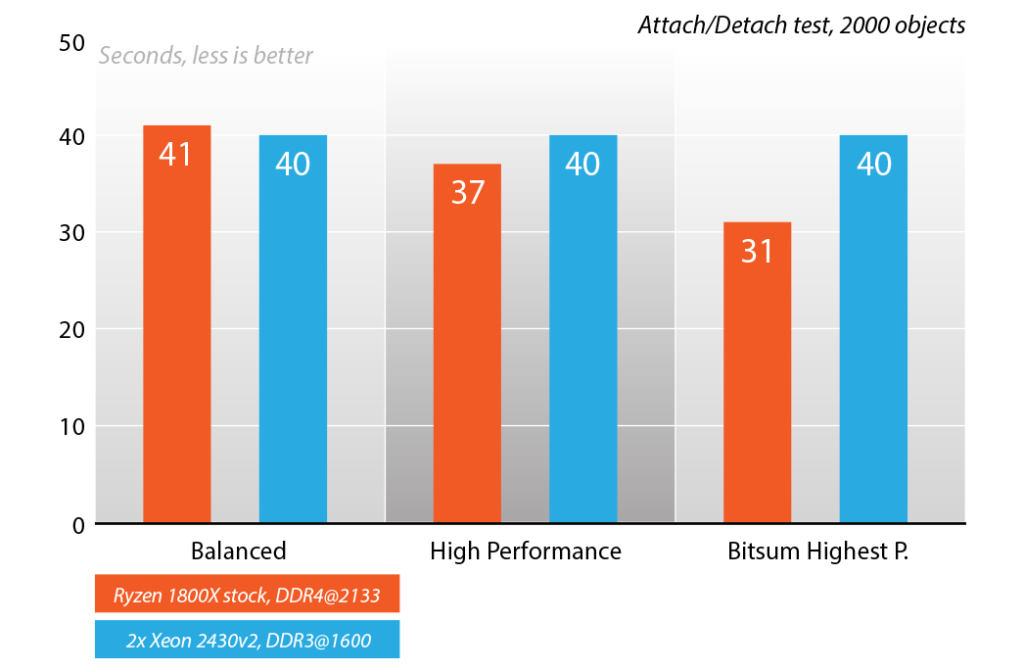
That tells me something was definitely fishy. But check what happens after the update:
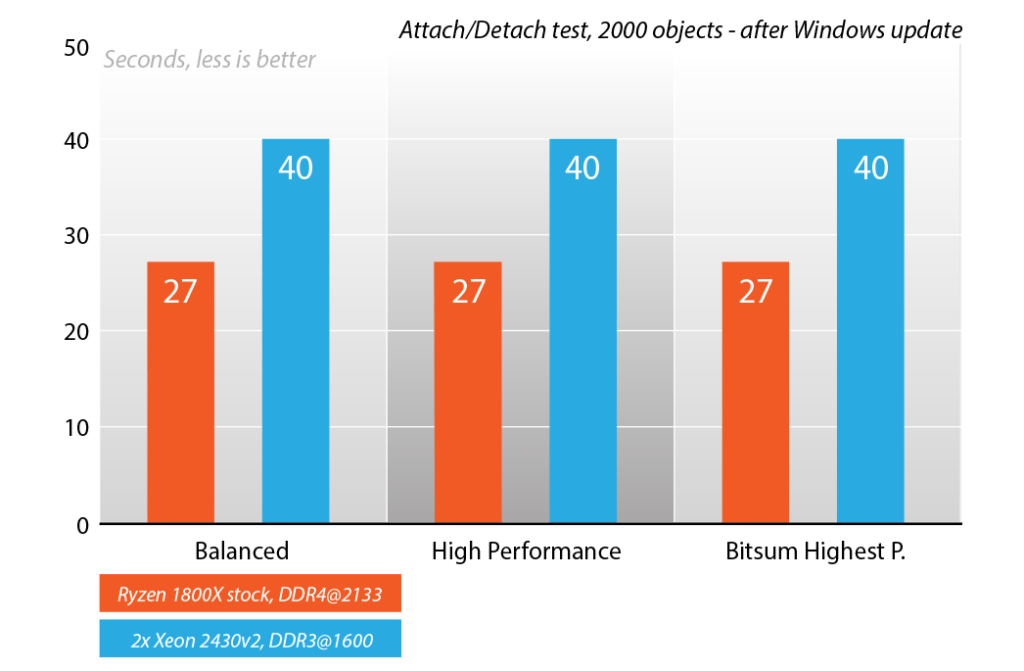
Now, since overclocking is always a topic with CPUs like these I won’t leave you to hang completely dry [unlike what my PC does when I try to run the RAM faster]. You guessed it. Next page. Clicky, clicky!

